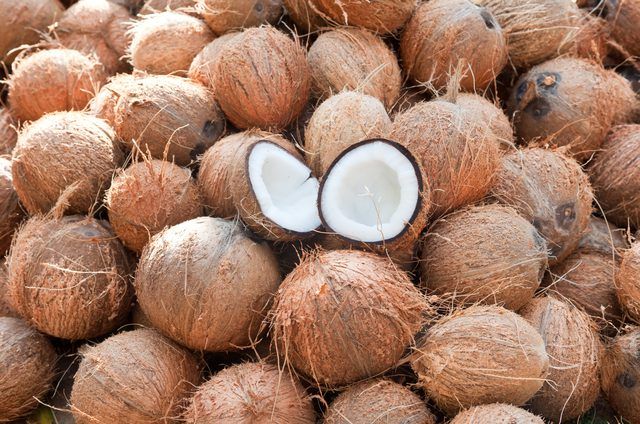Coconut Supply Crisis in Indonesia: How Unregulated Exports to China Are Inflating Prices
Learn how uncontrolled coconut exports to China are impacting Indonesia’s domestic coconut supply and driving up prices, creating challenges for local industries and consumers.
Admin
3/19/20252 min read


The Impact of Uncontrolled Coconut Semi-Husked Exports to China on Domestic Supply and Prices in Indonesia
Indonesia, as one of the largest coconut producers in the world, has seen a surge in the export of coconut products to international markets, particularly to China. However, the increasing demand from China, coupled with unregulated exports, has started to create an imbalance between the country's domestic supply and international demand. This imbalance has significant consequences for both domestic coconut prices and availability.
The Growing Demand for Coconut Semi-Husked from China
In recent years, China's demand for coconut products, especially semi-husked coconuts, has soared due to the increasing popularity of coconut-based products such as coconut water, coconut milk, and coconut oil. As one of the largest consumers of these products, China plays a key role in driving global demand. Indonesia, with its abundant coconut plantations, has become a major supplier to meet this growing need.
However, this rapid growth in export demand has led to a lack of control over the volume of coconut semi-husked exports, pushing the supply chain to the limit.
The Impact on Domestic Supply
The sudden surge in coconut exports to China has begun to deplete domestic coconut stocks in Indonesia. Local demand for coconuts, especially for consumption in traditional markets and local industries, has struggled to compete with the higher prices offered by international buyers. This has led to a reduced availability of coconuts for domestic use, affecting the supply of fresh coconut and processed coconut products within the country.
As a result:
Local businesses that rely on coconuts, such as traditional coconut oil producers and small-scale coconut product manufacturers, are facing shortages.
Farmers are shifting their focus to exporting coconuts due to higher profit margins, reducing the availability of coconuts for domestic consumption.
Prices for domestic coconut products are rising significantly, making it more difficult for consumers and local industries to access affordable coconut products.
Price Inflation and Its Consequences
As the supply of coconuts within Indonesia decreases, prices for domestic coconut products have begun to skyrocket. In particular, coconut-based products like coconut oil, coconut water, and desiccated coconut are becoming increasingly expensive for the Indonesian market. This has led to the following challenges:
Higher production costs for Indonesian manufacturers relying on coconut products as raw materials.
Economic hardship for consumers who rely on affordable coconut products in their daily lives.
Pressure on small and medium enterprises that cannot compete with the rising costs and supply shortages.
Regulatory Measures Needed
To address the challenges posed by uncontrolled coconut exports, it is essential that the Indonesian government and relevant authorities take immediate action to regulate the volume of coconut exports, ensuring that the domestic market is not left underserved. Possible solutions could include:
Implementing export quotas for coconut products to prevent over-exportation.
Incentivizing local production and consumption of coconut products by offering subsidies or price controls.
Improving the transparency and regulation of export channels to ensure that local needs are prioritized alongside international demand
Conclusion
The rapid increase in coconut semi-husked exports to China has created a supply-demand imbalance that is starting to hurt the domestic coconut market in Indonesia. If the issue remains unaddressed, it will not only affect local industries but also increase the cost of living for everyday Indonesians.
To safeguard the interests of both the global market and the domestic population, it is crucial to find a balance that supports sustainable and controlled coconut exports while ensuring that the needs of local consumers are met.
At PT Linggau Jaya Eksportir, we are committed to working with both local and international stakeholders to foster responsible trade practices and contribute to the long-term stability of Indonesia's coconut industry.



